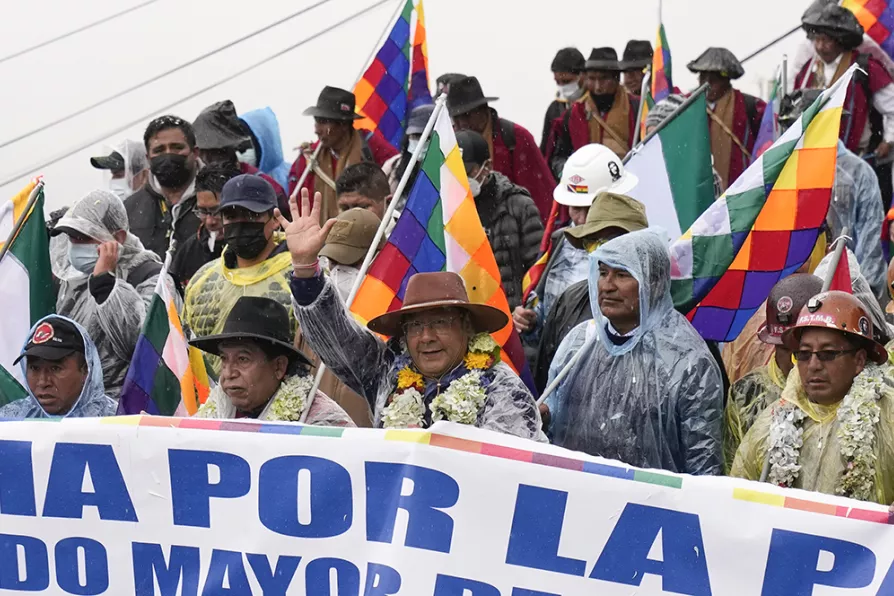The US-Israeli strikes against Iran are part of a decades-long war against the Islamic Republic which has refused to bow to US demands that it surrender its sovereignty, argues VIJAY PRASHAD

 Bolivia's President Luis Arce, center, waves as he walks with his Vice President David Choquehuanca, second left, and with former President Evo Morales, second right, during a march coined "March for the homeland," in La Paz, Bolivia
Bolivia's President Luis Arce, center, waves as he walks with his Vice President David Choquehuanca, second left, and with former President Evo Morales, second right, during a march coined "March for the homeland," in La Paz, Bolivia
THIRTEEN years ago, I saw for the first time the film The Revolution Will Not Be Televised. It documents, in fly-on-the-wall fashion, not only the 2002 US-backed coup d’etat against the Chavez government, but also its defeat by the massed hands of Venezuelans who came onto the streets to oppose it.
A year later, I was on a plane to Caracas, joining a solidarity delegation of trade unionists and activists to witness first hand the Bolivarian revolution being made in Venezuela. There were two central lessons of that experience.
First, solidarity matters. The revolution in public services, poverty reduction, and education alongside demonstrations for the government — unthinkable in Britain as politicians turned to the slash-and-burn logic of austerity — bore little relation to the headlines at home about anti-democratic and dictatorial strongmen.

International solidarity can ensure that Trump and his machine cannot prevail without a level of political and economic cost that he will not want to pay, argues CLAUDIA WEBBE

Far-right forces are rising across Latin America and the Caribbean, armed with a common agenda of anti-communism, the culture war, and neoliberal economics, writes VIJAY PRASHAD

LEE BROWN highlights the latest attempts to undo progressive reforms instated during the presidency of Rafael Correa

The US is desperate to stop Honduras’s process of social and democratic change, writes TIM YOUNG










